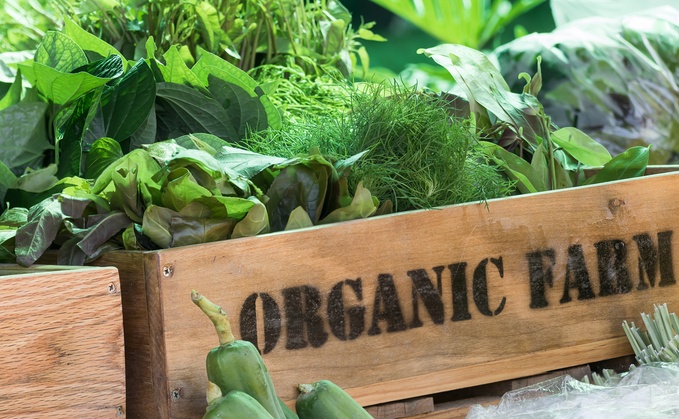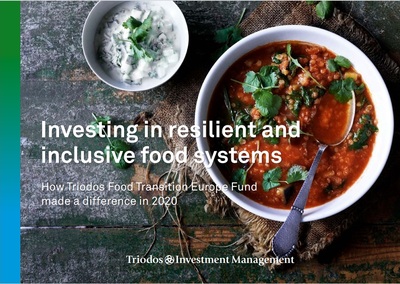
The way we produce, trade, and consume food is detrimental to our planet. That is why Triodos Investment Management is committed to the food transition.
Our system of food supply and agriculture is reaching its limits. "We will not be able to feed the world's population in a sustainable and healthy way if we continue like this. By 2050, we expect there to be 10 billion people living on our planet, but we no longer have the resources to support this population growth," said Isabelle Laurencin, fund manager of Triodos Food Transition Europe Fund. That is why the fund invests in companies that play a role in the transition to a social and ecological model of food supply.
Hidden hunger
Such a model is desperately needed, especially because our food production systems have a negative ecological impact. They slowly deplete the soil, generate a third of global greenhouse gas emissions and cause water pollution, by using fertilizers and pesticides.
There is also something wrong in the field of health. Our food system was set up after World War II with the aim of eradicating hunger. That means that we mainly produce cheap calories in large quantities. "That works very well to avoid famine, but with the side effect that we eat unhealthy food. In the meantime, even ‘hidden hunger' is a problem: we consume a lot, but too few vitamins and minerals. This way you're creating avoidable diseases such as obesity and diabetes," says Laurencin.
Technology
The logistical chain of our food production is also a concern. "Currently, 70 percent of what we eat comes from emerging countries. The poorest people in the world live there and because there are so many intermediaries, they don't get fair compensation for what they produce," says Laurencin.
Technology can provide an answer to some of these. "The food sector is one of the few economic sectors that has not yet witnessed a period of disruption. This is about to happen now, because technology allows for some structural changes", says Laurencin.
This disruption will affect almost all links of the food chain and is being pushed forward by the advance of sustainable and organic food producers, the increasing focus on healthy eating habits, circular business models and the attention for the entire value chain of food production.
Corona effect
Another big trend supporting the transition is consumer awareness. Covid-19 has had a substantial impact on our food and shed new light on how and what we eat. People are more aware of their health and consciously spend more time thinking about and preparing their food. Consumers want to know where their food comes from. The pandemic has accelerated that trend.
"The pandemic has painfully exposed the flaws of our food system and has accelerated what was already happening at a slow pace," says Laurencin. For example, people with diabetes or obesity proved particularly vulnerable during the pandemic and in many countries the supply chain was completely disrupted, resulting in empty store shelves.
"The pandemic has made people more aware. That will not change, even when this pandemic is over. Studies have shown that if you completely disrupt someone's habits, your consumer behavior can change in as little as three weeks. So, imagine what a year and a half of a pandemic can change."
Consumers, companies, and investors are becoming increasingly aware of the urgency to shift towards a sustainable food system. Get a taste of the importance and dynamics of the fast-growing sustainable food sector and the investment approach and impact of Triodos Food Transition Europe Fund. Download our paper Investing in resilient and inclusive food systems.















